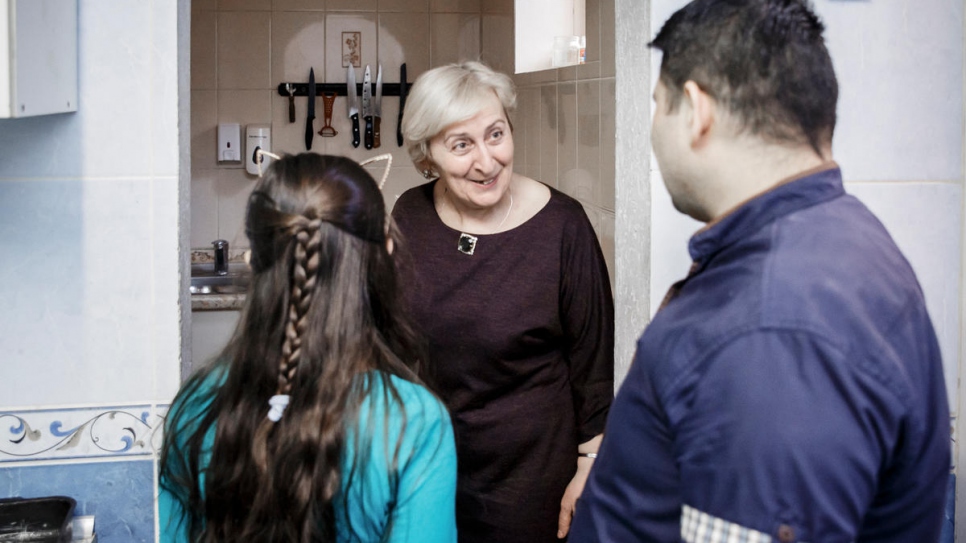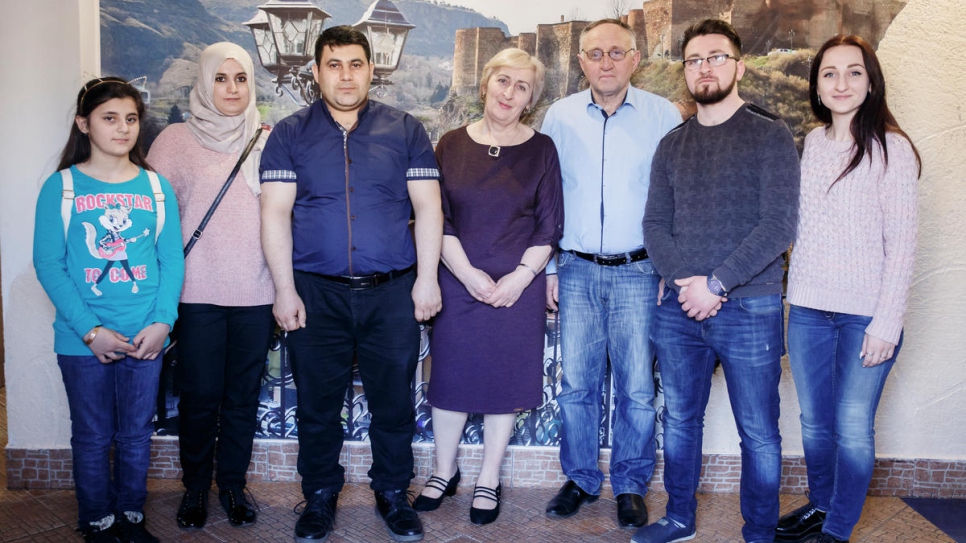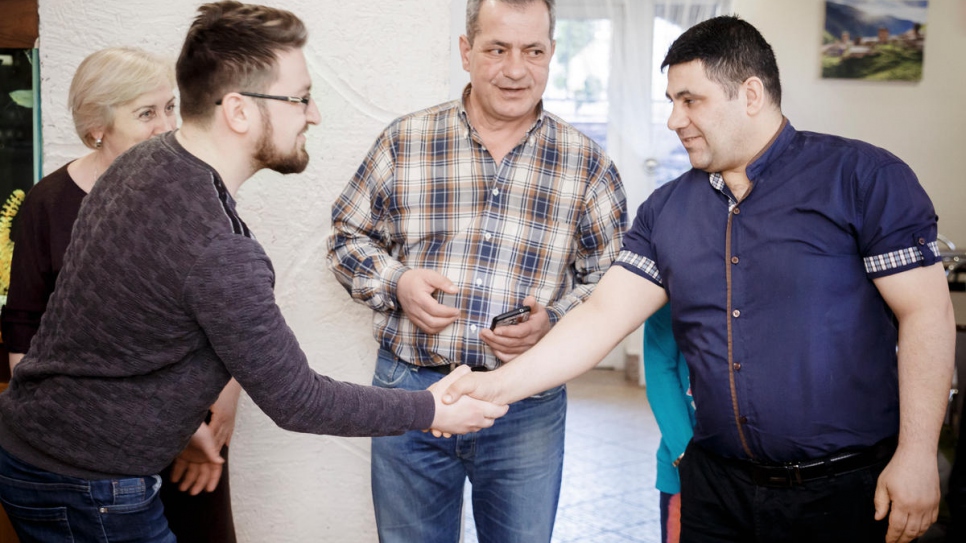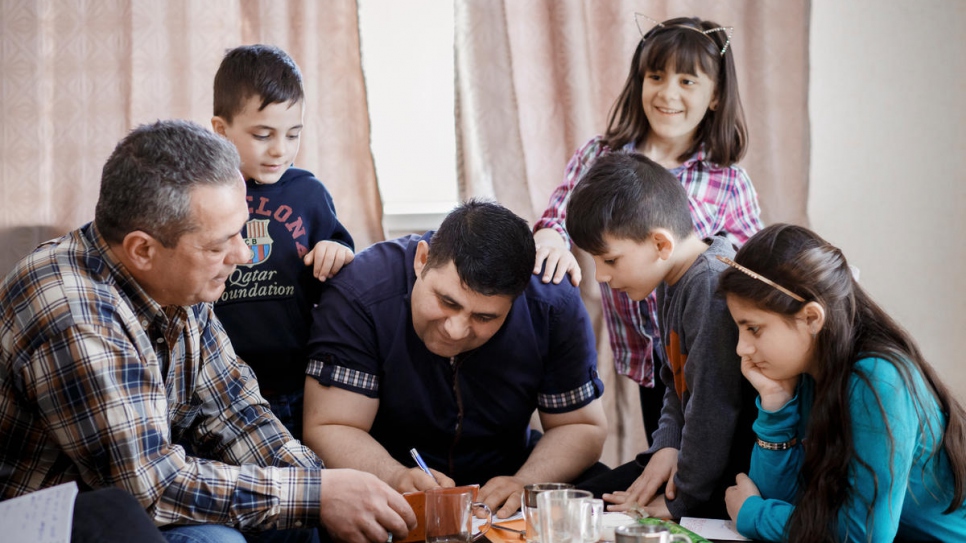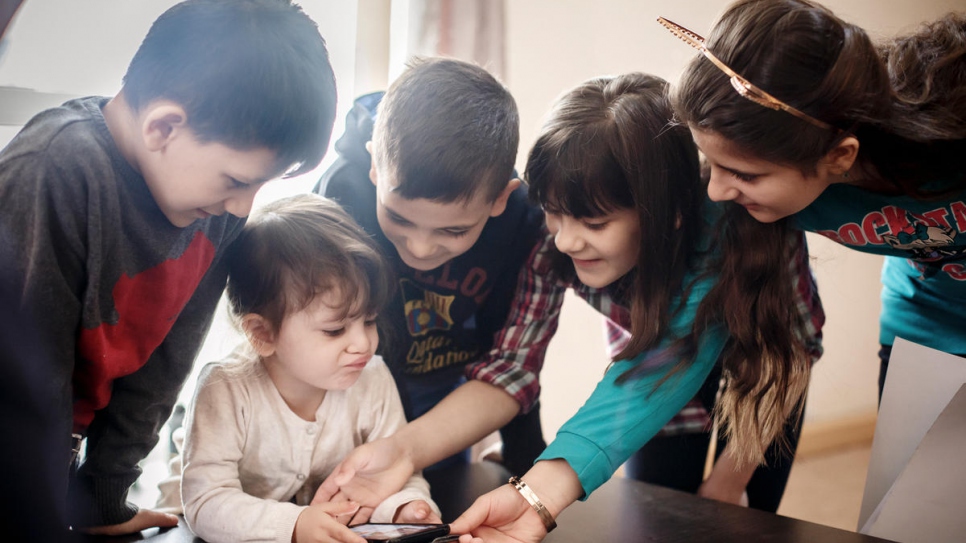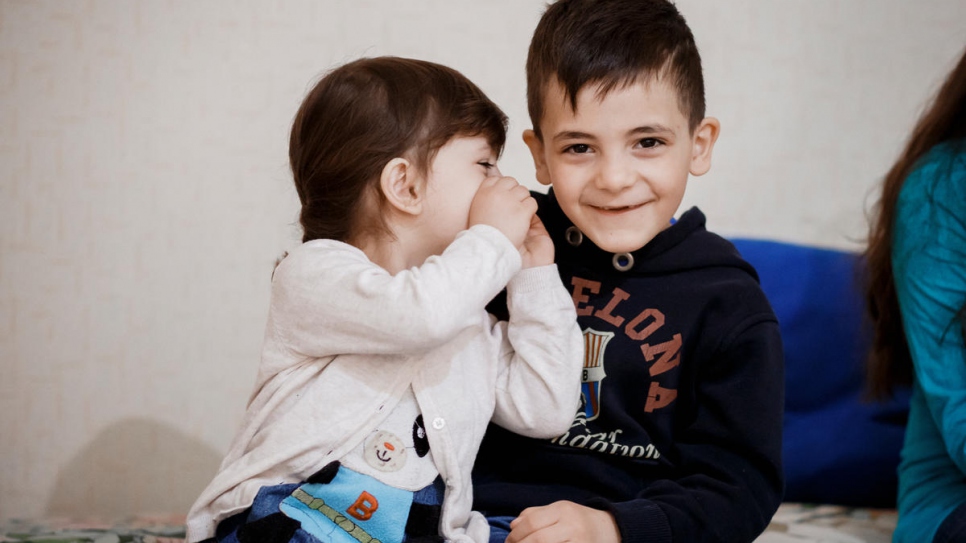Refugee families team up to open restaurant in Belarus
A Syrian chef and a Georgian restaurant owner believe their new partnership has all the ingredients of success.
Chef Imad, a Syrian refugee, with two of his children in Gomel, Belarus.
© UNHCR/Egor Dubrovsky
Chef Imad Ahmad knew it was time to leave Syria when the shelling in Daraa flattened his café.
“I wanted to save myself and my family because I knew everything was in vain,” he says. “My café was ruined. Flattened,” he says, with a sad shrug.
Hs daughter, Zainab, now 10, remembers shooting in the street. “One day a bomb hit our school and I couldn’t walk, I was so frightened. My teacher had to carry me out.”
In 2015, after fleeing to Lebanon, Imad, his wife Safaa and their five children were resettled in Gomel, Belarus. The 41-year-old chef has now teamed up with a Georgian family to open a restaurant and hopes to bring a taste of home to his new neighbourhood.
The Kolbayas – Marine, her husband Tengiz and two children – fled their home for Belarus 25 years ago. Marine, who also teaches music, opened Gomel’s only Georgian restaurant in 2014.
“I expected nothing when we arrived."
Since then, business has boomed and she is looking forward to working with Imad on their new venture, after the pair were put in touch by UNHCR, the UN Refugee Agency.
Marine, 56, understands how hard it can be to start over.
“I don’t like this word refugee,” she says. “I never thought it would concern me, but it did. It was so difficult. We didn’t have anything.” She shakes her head and sighs.
“I expected nothing when we arrived,” recalls Imad. “I was just thinking about the kids’ future. I wanted them to go to school. When the plane landed, we saw snow for the first time. And forests – everything is so green!”
Despite the difficulties, the Ahmad family feel settled in Gomel. Imad and Safaa are learning Russian thanks to UNHCR language classes and the children are already fluent with many friends at school.
“When you’re open, people are open to you."
Jean-Yves Bouchardy, UNHCR representative in Belarus, says making a living is vital to self-reliance and UNHCR is providing comprehensive support to the venture. “We believe that this refugee-driven business will help the families rebuild their lives and achieve self-efficiency while benefiting the host community," he adds.
As the restaurant opening approaches, the Ahmads are happy to have the opportunity to contribute and do something useful. Imad, especially, is excited to bring his specialty – falafel – to the local area, after honing his skills in five-star restaurants in Lebanon.
“It was my main dish,” he says, showing photos of the café in Syria where he first served it. “The ingredients must be fresh and the oil too – you need to watch it so it doesn’t burn. And the spices must be natural.”
Marine says she has only eaten Syrian food once, when Imad cooked for her, adding: “It is tasty!”
Imad and Marine believe their partnership proves there is truth in the belief that human beings are better together.
“When you’re open, people are open to you,” says Marine. “It doesn’t really matter if you are Christian, Muslim, Hindu, we’re all human beings, we’re all made of the same dough. We don’t need borders, just respect.”

